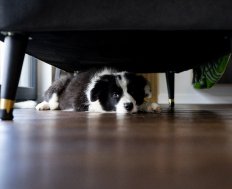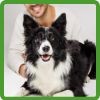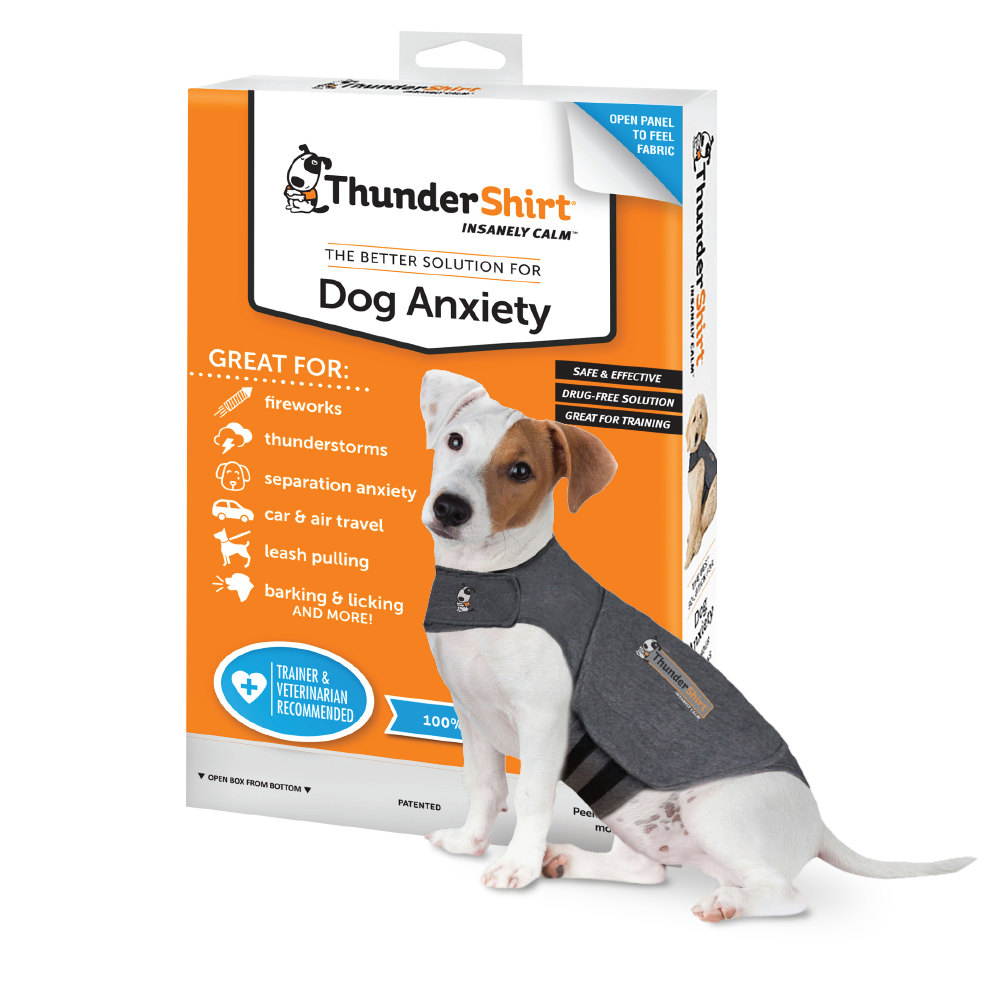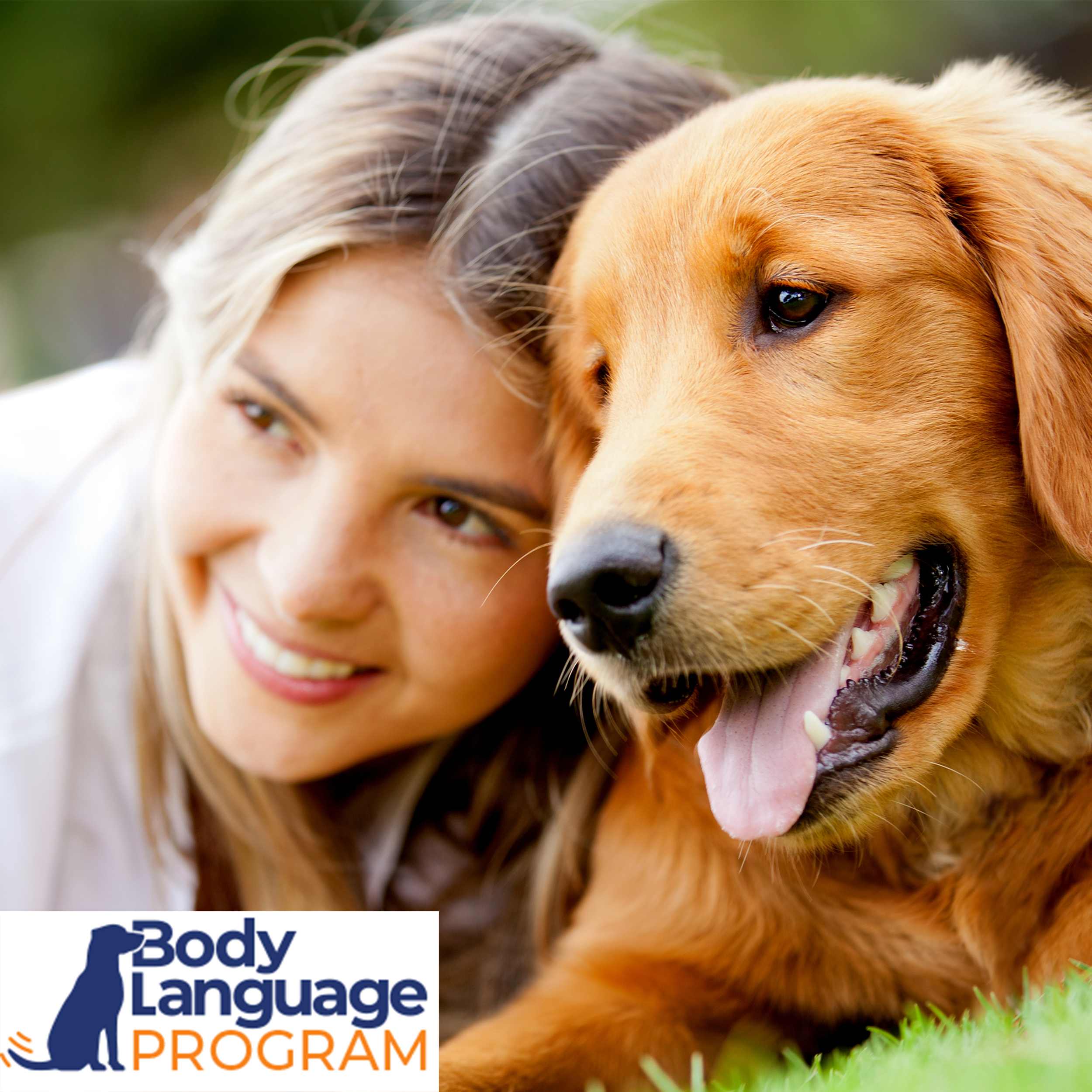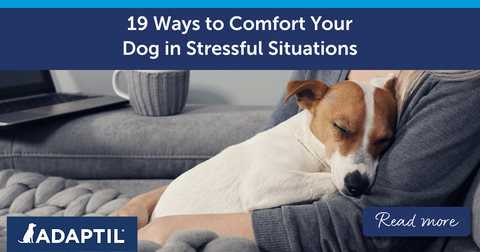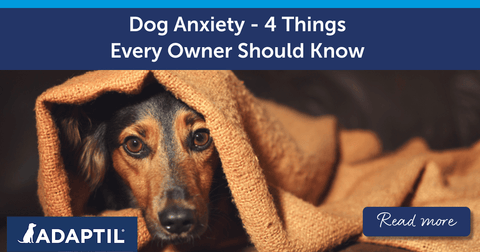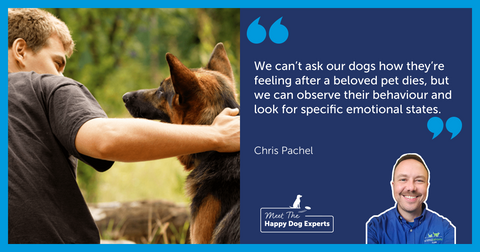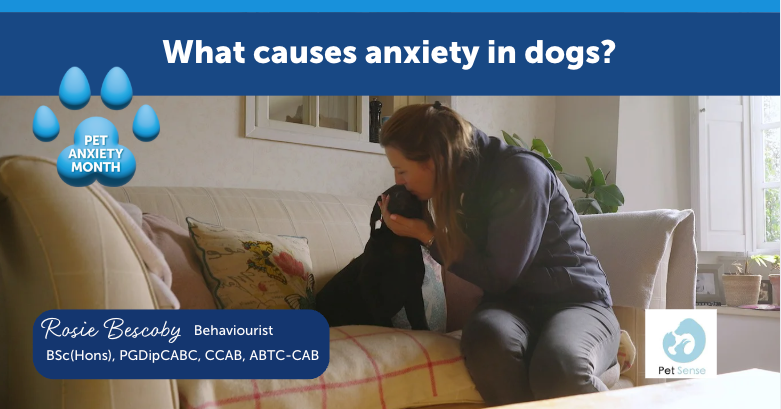
What causes anxiety in dogs?
Did you know that March is Pet Anxiety Month? As a Clinical Animal Behaviourist, I see firsthand how anxiety affects dogs. I believe it is essential for dog owners to recognise the signs of anxiety and take proactive steps to help their dogs feel calm and secure.
Many dogs experience anxiety due to the unpredictability of various triggers such as loud noises, separation from their owners, changes in routine, or new environments. However, even small interactions that happen with people or other dogs throughout the day can cause a dog to feel worried. Pet Anxiety Month is a great opportunity to raise awareness, so I want to help you identify and manage these stressors for your dog’s well-being.
Signs of Anxiety in Dogs
When a dog feels worried by something, they will use certain body language signals as communication, and they might exhibit some behaviours that act as coping strategies:
- Vocalising such as whining, or excessive barking
- Destructive behaviours (chewing, digging)
- Pacing or restlessness
- Trembling or drooling
- Not eating when they would otherwise eat the food on offer
- Hiding, cowering or turning their head away
- Rolling over onto their back when a person or dog goes to interact with them
- Pulling their ears back, tucking their tail down and/or showing the whites of their
Common Causes of Anxiety in Dogs
In my experience, the most common situations that cause anxiety in dogs are:
- Separation anxiety when left alone
- Anticipating loud noises e.g. windy weather predicts storms, dark nights and predicting fireworks
- Changes in the household e.g. a new pet, family member, renovation or a house move
- Travel
- Unpredictable interactions with people or other dogs.
Supporting Your Dog with Anxiety
Here are my top tips that can help all dogs, but particularly those who tend to show signs of anxiety:
- Learn to read dog body language: Observe signs of anxiety in your dog so you know when they might need support.
- Create a safe space at home: I recommend creating a quiet, comfortable area where your dog can retreat to when they want to relax. Associate this area with nice things such as chews or stuffed food items.
-
Encourage sniffing: Dogs navigate their world through scent and using their nose makes them feel good. Give them time to investigate smells on walks, or actively encourage them to search for small pieces of food scattered in the grass or a toy thrown into shrubby areas.
-
Maintain a routine: Keeping a stable routine is important for anxious dogs. Feed them at the same times each day, ensure your dog gets daily walks in places that do not cause them stress, and schedule in regular playtimes to boost their feel-good hormones.
-
Provide support: Be your dog's biggest advocate. If you see your dog is anxious, remove them from the situation or turn it into a positive by producing tasty treats or a favourite toy. If you can predict that a situation is likely to worry your dog, be prepared – for example, take a toy or some tasty treats with you, give them space to watch from a safe distance, or play loud drumming music before any scary noises start. If your dog seeks reassurance at any time, it is ok to give it – getting annoyed or rejecting them will make them feel worse. However, if they take themselves away, respect their space.
- Consider anxiety-relief products: I’ve found that products such as Thundershirts, pheromone collars, diffusers, or sprays for bedding can help alleviate anxiety in dogs.
- Consult your vet: If your dog experiences chronic anxiety or panic that you can’t avoid, I recommend booking an appointment with your vet. They may suggest behavioural therapy or medication as part of a more comprehensive plan to address the issue.
I believe that by learning more about anxiety and taking steps to support your dog, you're helping them to lead a happier, calmer life – that will benefit both you, and them!
Rosie Bescoby
Clinical Animal Behaviourist, Pet Sense
Rosie Bescoby is a Certified Clinical Animal Behaviourist with a degree in Psychology and Zoology and a Post-Graduate Diploma in Companion Animal Behaviour Counselling, based in and around Bristol and North Somerset. Rosie is a full member of the Association of Pet Behaviour Counsellors, a member of the Association of Pet Dog Trainers, and registered as both a Clinical Animal Behaviourist and as an Animal Training Instructor with the Animal Behaviour and Training Council. For more information please visit: www.pet-sense.co.uk


